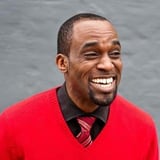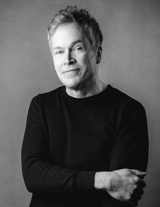Log in or create a free Rosenverse account to watch this video.
Log in Create free account100s of community videos are available to free members. Conference talks are generally available to Gold members.
Summary
At the July Civic Design Community call, hear from Deanna Zandt (she/her). The term "self-care" is thrown around a lot these days but there's a more complicated picture than just taking a bubble bath and hoping for the best. In this call we talk about what's missing from our conversations about self-care. We also discuss how human experience is fundamentally messy, but designers (and coders) like to make everything clean and neat. We've got to start reckoning with that. Our goal is that you walk away with a sense of the care structures that you have and need in your own lives, and a sense of what designing care into our systems could look like. About our speaker: Deanna Zandt is a writer, artist and award-winning technologist living in Brooklyn, NY. She spent 15 years working at the forefront of social justice, technology and media; after she burned out for the third time, she realized that maybe that work didn’t suit her particularly well. Currently, she spends her time: supporting other very impressive people and organizations behind-the-scenes with their technology; writing & drawing when she feels like it; walking and playing with her two dogs and their friends; connecting with humans near and far; and figuring out how to exist with meaning, fulfillment and as many giggles as possible. We’ll be talking (and very likely giggling) about her zine that traverses the constellation of self-soothing, self-care, community care and structural care.
Key Insights
-
•
Self-care and self-soothing are distinct: self-care supports long-term wellbeing, while self-soothing addresses immediate distress.
-
•
Community care acts as a vital bridge, allowing individuals to support each other's capacity for self-care and self-soothing.
-
•
Structural care involves systemic reforms that enable sustainable wellbeing beyond individual or community efforts.
-
•
Capitalism’s exploitative nature fundamentally conflicts with genuine care systems.
-
•
Communities of color often embed care practices into social movements more deeply than mainstream white-led movements.
-
•
Burnout is tied to outdated values of sacrifice and hustle; newer generations prioritize healthier integrations of work and care.
-
•
Activism encompasses diverse roles—direct action, support, financial contributions—and no role is insignificant or lesser.
-
•
Toxic optimism oversimplifies human experience and can hinder authentic coping and systemic change.
-
•
Movement-building includes practices like grief work, body movement, and relational culture to sustain activists holistically.
-
•
Long-term collaboration, like Deanna’s 17 years with Jim Hightower, demonstrates how relationships and joy sustain social justice work.
Notable Quotes
"You can never be sick enough to help the sickest people."
"The hustle does suck, and Gen Z is doing this other thing over here, arranging in healthier ways."
"Self-care became a commodity where buying things was mistaken for healing and support."
"Everybody does better when everybody does better."
"If we don’t do the work, the world won’t be on fire—it already is."
"There’s no insignificant work in activism; all roles are critical."
"The design of our systems should make room for messy, complicated human realities, not just positive illusions."
"Movement building requires healing, grief work, and physical movement to sustain people."
"I finally started saying, I understand your budget, but I have one too, and I deserve to be paid."
"Sometimes significant change happens in a heartbeat because one person said something unexpected."
Or choose a question:
















More Videos

"The organization’s website structure often mirrors its internal organizational structure and decision-making."
Sheryl Cababa Alexis OhThinking in systems to address climate with Sheryl Cababa
June 12, 2024

"Trust building and informed consent are things you can improve in research without stressing the business."
Jemma Ahmed Robert Fabricant Sean McKay Llewyn Paine Kate Towsey Noah BondTheme Panel
March 11, 2025

"User experience can transform complex climate data into meaningful stories that spur action."
Louis Rosenfeld Matt Jones Olga Khroustaleva Michael Leggett Karol MunozDo you want to work on climate? (Climate UX Discussion Series)
November 15, 2023

"I dreamed about work every night for a year as I was learning the language of corporate tech jargon and ux terms."
Rachel Radway Katie Bingham Joe WiertelThe Many Paths Of Design Operations
September 8, 2022

"Having a diverse team helps ensure you’re asking the right questions in research and design."
Lija HoganPractical Principles of Inclusive Research
March 27, 2023

"We neglected our power users during the responsive, one-size-fits-all strategy, and it really hurt us."
Malini RaoLessons Learned from a 4-year Product Re-platforming Journey
June 9, 2021

"Some early community recordings sound rough, but the overall error rate for the AI transcription is pretty low."
Louis RosenfeldThe Rosenbot and the Rosenverse: An AMA with Lou Rosenfeld
June 5, 2024

"Different ops functions have different incentives; aligning those incentives could make leaps and bounds in collaboration."
Jon Fukuda Jake Burghardt Jose Coronado Natalie Dunbar Denise TillesAll the Ops: Successful cross-functional collaboration
September 10, 2025

"Building a portfolio of talks, refreshed over time, lets you keep evolving and sharing your ideas in different formats."
Louis Rosenfeld Jemma Ahmed Christian Crumlish Uday Gajendar Chris GeisonCoffee with Lou #3: What Makes for a Successful UX Conference Presentation?
May 2, 2024
















